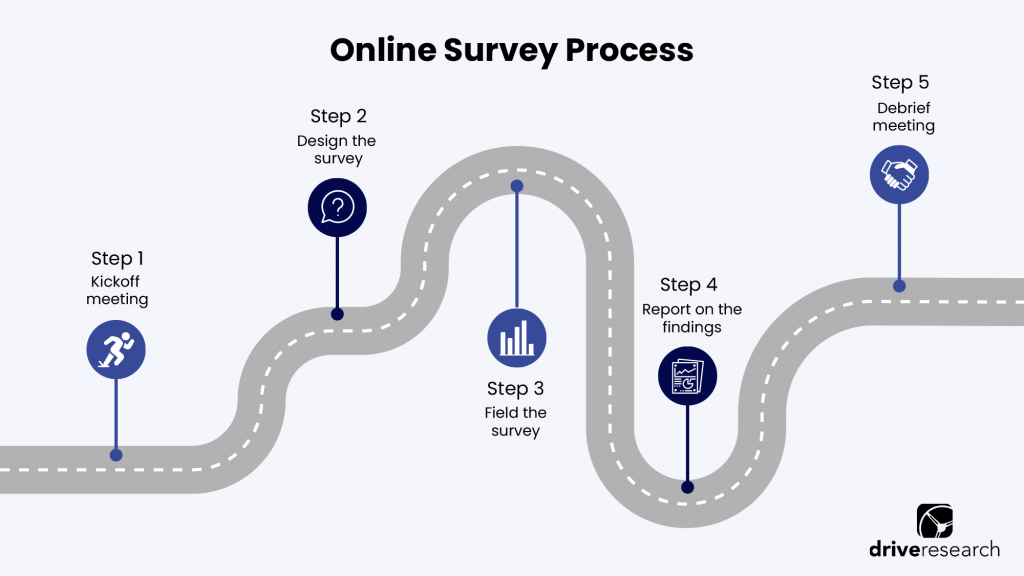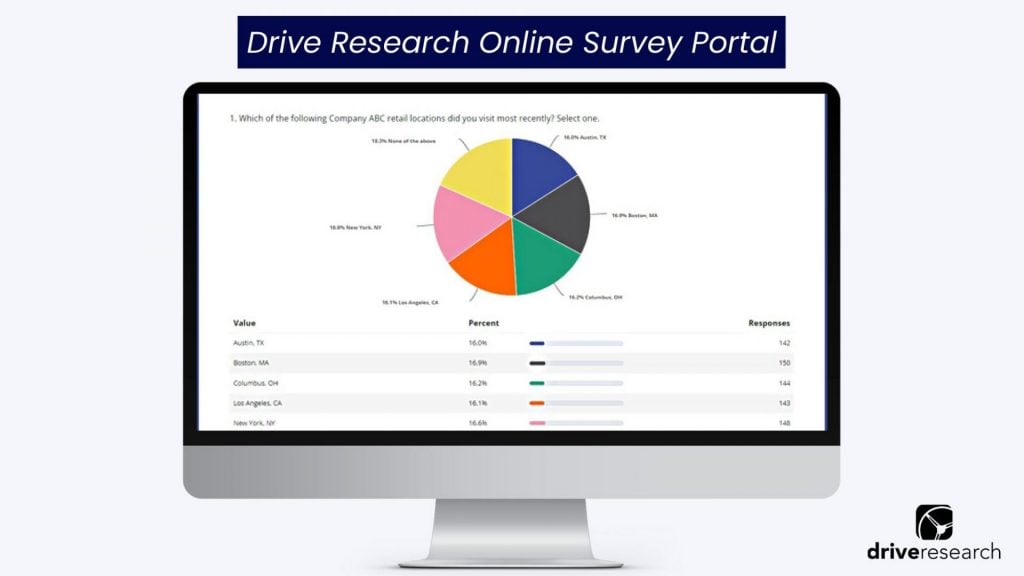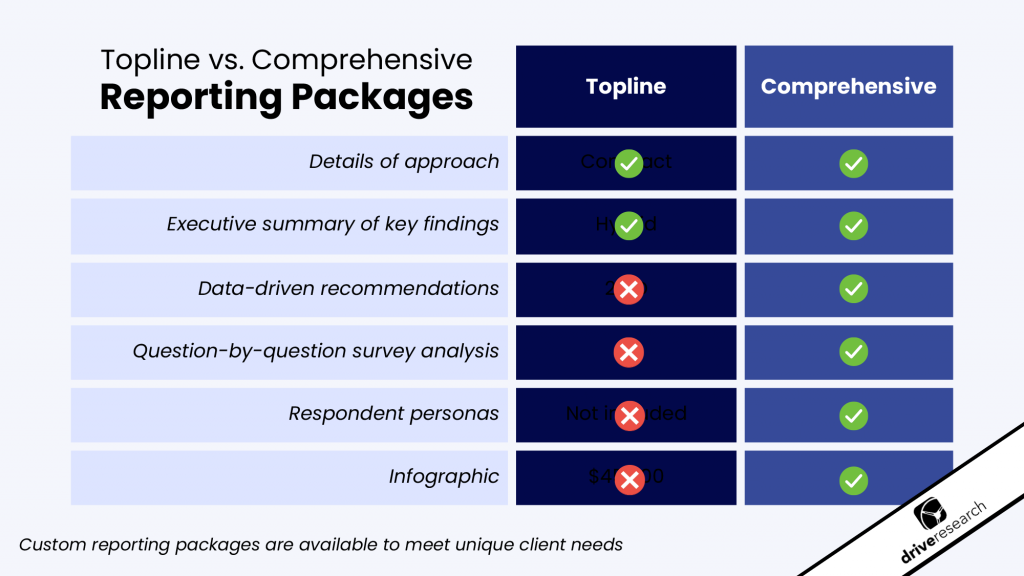
When it comes to customer survey, one of the most popular customer satisfaction metrics to measure is CSAT. Unlike other metrics such as Net Promoter Score (NPS) and Customer Effort Score (CES), customer satisfaction (CSAT) can cover everything from rating an overall experience with your company to rating very specific categories.
What is CSAT?
CSAT stands for “Customer Satisfaction.” It is a common metric used by companies to measure how satisfied their customers are with their products, services, or overall customer experience.
A high CSAT score means that customers are happy with the company’s offerings and are likely to be repeat customers or recommend the company to others.
Additionally, companies use CSAT scores to identify areas for improvement and to track changes in customer satisfaction over time.
How is CSAT measured?
CSAT scores are usually measured by conducting customer satisfaction surveys or questionnaires where customers are asked to rate their satisfaction level on a scale of 1-5 or 1-10.
The anchors in the rating scales range from very unsatisfied to very satisfied.

After the data is collected, buckets are created which group respondents into dissatisfied, neutral, and satisfied groups.
The common CSAT groupings on the 0 to 10 scale are as follows:
- Dissatisfied are those rating you a 1 to 3
- Neutral are those rating you a 4 to 7
- Satisfied are those rating you an 8 to 10
Why is CSAT important to measure?
Customer-centric companies, ones that prioritize feedback and customer experience, are 60% more profitable than organizations that do not.
That’s because the best way to cater directly to customers is to talk to them directly and learn what they are looking for from your organization.
Advantages to measuring CSAT include:
1. Identifying areas of improvement
CSAT is one of the most effective market research metrics to understand customer needs. Respondents may bring up pain points during their customer experience, giving your organization an opportunity for growth.
When it comes to changing business processes or altering strategy, CSAT surveys eliminate guesswork. You receive data-backed recommendations to solve whatever problem customers face.
The faster you enact changes, the more effective they will be on future customer satisfaction.
Even more so, calculating CSAT scores more regularly can later prove a return on investment.
Recommended Reading: The Benefits of Continuous Customer Feedback Surveys
2. Understanding drivers of awareness
CSAT surveys measure more than customer satisfaction. They can also help organizations understand their customers’ perceptions, priorities, and values.
These insights can be applied to all aspects of the business including marketing.
Respondents may give feedback about the messaging of your brand or their personal
For example, it can inform marketing considerations like which social media platforms to utilize and what content they are looking for.
3. Understanding brand differentiators
By measuring CSAT and other customer satisfaction metrics, organizations can identify brand differentiators or pain points directly from customers.
This information can give your company a competitive edge and can build customer loyalty.
For example, respondents may share that the customer service at your business has been the best part of their experience. That factor could then be used to position your product or service against competitors.
These factors should be taken seriously because they could build customer loyalty and improve customer retention.
How and When Should You Use CSAT?
CSAT, similar to NPS, is a crucial metric for gauging customer experience. The value lies in how you utilize these scores to enhance the customer experience.
CSAT (Customer Satisfaction Score) should be employed at various touch points throughout the customer journey to capture feedback along the customer journey. For instance, after a purchase, a customer service interaction, or the completion of a service, deploying a CSAT survey can provide timely insights into customer satisfaction levels.
CSAT scores can also be used at different points in the journey of your customers. Mid-journey or after someone has been a customer for 6 months to a year, another survey to find out how satisfied they are with their purchase and what they get from it can be valuable.
By identifying the drivers of customer satisfaction or dissatisfaction, you can develop targeted strategies to address specific pain points and enhance overall customer experience.
By taking action based on the CSAT scores your customers submit, you can not only improve customer experience but also drive better business decisions (and outcomes). Enhanced customer satisfaction leads to increased loyalty, positive word-of-mouth, and ultimately, higher revenue.
How can I conduct a CSAT study?
Customer satisfaction surveys come in many shapes and sizes. They can be conducted by mail, by email, through an online link, and through the telephone.
Although, CSAT studies are most commonly completed online. That’s because online surveys are the most cost-effective market research methodology and can be completed quickly.
Below is the process our customer satisfaction survey company follows to measure CSAT for clients.

1. Proposal
Although it may seem less expensive and better to manage a customer satisfaction survey in-house, think about the benefits of using a third party.
Usage of an outside customer satisfaction survey company can save you time and ensure results are unbiased.
These third-party market research companies can lend their experience and expertise to the process.
And the best customer satisfaction firms will work with you to customize an approach, methodology, and questions for the CSAT survey.
The scope of work will come to your business in the form of a proposal.
This proposal will include details on the process, timeline, and exact cost.
2. Kickoff
Once the proposal is accepted, you’ll then have a kickoff meeting to cover the main objectives.
The core benefit of a kickoff meeting is for the CSAT company to learn about your needs, goals, and end results desired from the project.
Following the meeting, the consultant should prepare a project workplan for both teams.
3. Drafting the CSAT survey
The first step of the setup for the market research company is to write a draft survey document.
This survey should reflect the objectives from the kickoff meeting.
A good CSAT survey is a combination of customized questions and standard questions recommended by the consultant.
The market research company will design the survey for you and send you a test link if the survey is completed online or through email.
This gives you an opportunity to review the look and feel before it is finalized.
4. Soft launch the CSAT study
At Drive Research, we always recommend a soft-launch phase to test the survey before fieldwork begins.
This ensures the process is working correctly and respondents are comprehending the questions before sending invitations to all.
There is no rush in testing CSAT surveys to ensure they will meet objectives, and there are multiple opportunities to change or improve aspects before the survey reaches your entire customer base.
5. Fieldwork
Now the fun begins. Once the survey is live and the data rolls in, you can begin getting an idea of the results.
Most customer survey companies will offer clients live data look-ins. This has become standard practice in recent years.
This data submitted from customers is up-to-the-second feedback.
Clients have the ability to go into the dashboard, filter, and customize looks at the data.

Use our interactive link to see how the client portal works
All surveys inevitably have respondents who have an issue or question about the survey.
These can be submitted directly to your third-party firm managing the survey rather than you. This saves you time and allows you to focus on other priorities.
All surveys (either online or by email) include at least 1 or 2 follow-up reminder emails.
Although the majority of your survey completes will be collected in the first 24 hours of the initial invite, you will see some bumps in responses after your 1st and 2nd reminders.
Recommended Reading: Basic Tips When Sending an Email Customer Survey
6. Data Cleaning
After the target number of respondents is reached, the data is prepared to be analyzed and reported on.
It’s important to clean the data which involves going through the set to ensure responses are accurate.
Here are a few CSAT survey data cleaning tips from our market research company:
- Check for duplicate entries if there are responses from the same email addresses or IP addresses.
- Straightliners who answered multiple questions in a row the same way
- Illogical or erroneous answers in open-ended responses
- Speeders or laggards whose completion times vary greatly from the average
Cleaning data ensures accuracy in responses so insights that are reported on are most impactful for your business.
7. Survey analysis
This is the portion of a CSAT study where a firm can add significant value.
A good customer satisfaction survey company will go beyond the data for you and dig into the insights, interpretations, and analysis of the results.
They will provide you with a themed executive summary, recommendations, infographics, and a question-by-question breakdown of results.
This all comes in the report package for most.
8. Reporting
A comprehensive report includes cross-tabulations among key customer segments, geographies, ages, and other areas.
Although based on the cost of a customer satisfaction survey, a topline report may be more suitable for tighter budgets.

9. Debrief meeting
Lastly, rather than passing you a data dump of Excel tables and a banner book, the market research firm will pull out key data points and walk you through the findings in a debriefing meeting.
This meeting helps clarify CSAT survey findings in the report and gives you the opportunity to ask any additional questions.
After this meeting, the market research firm will make any necessary revisions and corrections to the draft report before sending a final copy.
Pros & cons of using CSAT
Pros
CSAT has a lot of positives when used in measuring, especially compared to some of the other methods available.
- Simple To Use: CSAT scores are simple to capture data for. Typically they are just one question that asks respondents to answer on a scale format and can be easily accessible from a number of different platforms (mobile, desktop, and more).
- Quantitative Data: Since CSAT is quantitative data, it can be used analytically in a number of different ways for your business.
- Commonly Accepted: CSAT is widely used in market research which means it can be used for benchmarking and be used for things like marketing strategies and more
Cons
CSAT does have some downsides that you as a business need to consider. Here are the main ones below.
- Self Reporting Data Biases: Since CSAT commonly uses surveys, it means it the data is collected by self-report (respondents fill in their answer). With self-report data, biases are common so you may need to be sure to clean your data if possible. Otherwise your data may not reflect how respondents truly feel
- Limited Data: Even though CSAT data can be incredibly useful, it typically is very shallow in terms of depth. There is no room for nuances or explaining an answer further.
Contact Our CSAT Survey Company
Drive Research is a national market research company that helps company measure and analyze key customer satisfaction metrics such as CSAT, NPS, CES, and more. Whether you’re looking to measure customer satisfaction through online surveys, phone surveys, or focus groups – our market research team can help.
To learn more about our services or get a quote for a CSAT survey, contact Drive Research today.



